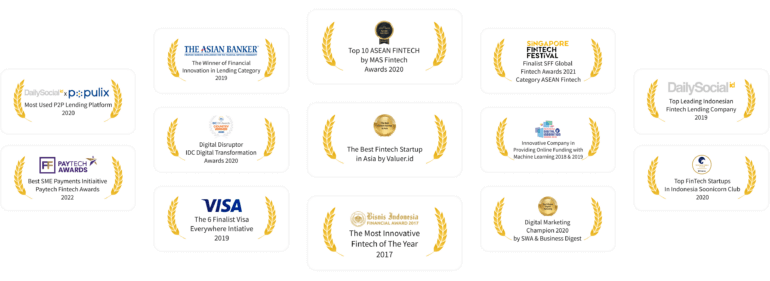PENGGUNA SUDAH BERGABUNG MENUJU BISNIS & FINANSIAL IMPIAN MEREKA
TOTAL AUM (Asset Under Management)
KOINWORKS KELOLA SAAT INI
TOTAL PINJAMAN SEJAK BERDIRI DARI TAHUN 2016
TOTAL PINJAMAN DI TAHUN 2024 INI
DANA PROTEKSI
Adalah mantra kami untuk melayani kebutuhan finansial
bagi kamu para Pengusaha, ataupun untuk mengembangkan Aset Pribadi kamu
Dari Dashboard Bisnis, Pembayaran Bisnis bahkan Pinjaman modal usaha tersedia untuk kamu cukup dengan 1 klik, persis seperti mantra kami!
Pengaturan keuangan pribadi semakin mudah. Mulai dari investasi, diversifikasi, hingga manajemen aset, cukup dengan 1 klik, persis seperti mantra kami!
Cerita Para Pejuang Mimpi yang sudah menjalankan mantra kami, #SatuKlikUntukWujudkan
Deretan pencapaian KoinWorks selama ini untuk kamu para pejuang mimpi!

Yuk intip kerja keras KoinWorks untuk komunitas & semua lapisan masyarakat


Kamu dapat melakukan pembelian produk dengan cara memilih produk pada website, datang ke kantor, atau menghubungi agent kami secara langsung.
Kami juga memiliki fitur solution finder yang dapat memberikan solusi yang terbaik yang pasti sesuai dengan kebutuhan kamu, untuk menggunakan fitur solution finder, kamu dapat menjawab beberapa pertanyaan terlebih dahulu.
Sistem kami secara automatis akan memberikan pilihan paket terbaik untuk kamu dan dapat kamu custom sesuai dengan keinginan dan kebutuhan kamu